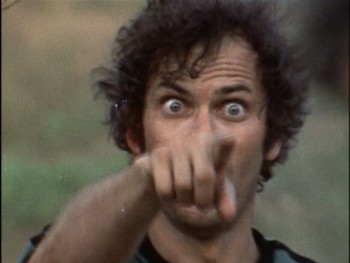- Welcome to Cook'd and Bomb'd.
-
 Taskmaster s17
by beanheadmcginty
Taskmaster s17
by beanheadmcginty
[Today at 01:10:12 AM] -
 Who were the earliest openly...
by Ferris
Who were the earliest openly...
by Ferris
[Today at 01:10:11 AM] -
 Richie Sunak - The Decline...
by jobotic
Richie Sunak - The Decline...
by jobotic
[Today at 01:09:47 AM] -
 Jimmy Carr's new Netflix special....
by Ferris
Jimmy Carr's new Netflix special....
by Ferris
[Today at 01:06:11 AM] -
 Comedy lines that just tickle...
by Ferris
Comedy lines that just tickle...
by Ferris
[Today at 01:01:35 AM] -
 Threelon Musk: pl3ase lik3...
by touchingcloth
Threelon Musk: pl3ase lik3...
by touchingcloth
[Today at 01:00:54 AM] -
Life After Oz (the HBO prison... by Good One of Wally
[Today at 12:58:55 AM] -
 I've decided The Larry Sanders...
by McChesney Duntz
I've decided The Larry Sanders...
by McChesney Duntz
[Today at 12:55:35 AM] -
 Python love
by McChesney Duntz
Python love
by McChesney Duntz
[Today at 12:45:59 AM] -
 Cass Report [split topic]
by Mx Wrongs
Cass Report [split topic]
by Mx Wrongs
[Today at 12:44:40 AM]
Members
 Total Members: 17,819
Total Members: 17,819 Latest: Jeth
Latest: Jeth
Stats
 Total Posts: 5,578,436
Total Posts: 5,578,436 Total Topics: 106,671
Total Topics: 106,671 Online Today: 1,086
Online Today: 1,086 Online Ever: 3,311
Online Ever: 3,311- (July 08, 2021, 03:14:41 AM)
Users Online
 Users: 52
Users: 52 Guests: 750
Guests: 750 Total: 802
Total: 802 Theotherside
Theotherside jobotic
jobotic Kelvin
Kelvin Marbles
Marbles beanheadmcginty
beanheadmcginty Theoretical Dentist
Theoretical Dentist The Duck Man
The Duck Man sprocket
sprocket johnlogan
johnlogan TheDreamIsOver
TheDreamIsOver ElTwopo
ElTwopo Johnny Van Axel Dongen
Johnny Van Axel Dongen Claude the Racecar Driving Rockstar Super Sleuth
Claude the Racecar Driving Rockstar Super Sleuth Moj
Moj Jimmy the Harp
Jimmy the Harp Psybro
Psybro Stoneage Dinosaurs
Stoneage Dinosaurs Agent Dunham
Agent Dunham Lordofthefiles
Lordofthefiles Cold Meat Platter
Cold Meat Platter Virgo76
Virgo76 Steven88
Steven88 klaatu!
klaatu! Egyptian Feast
Egyptian Feast Bum Flaps
Bum Flaps hamfist
hamfist burst_arm
burst_arm Memorex MP3
Memorex MP3 Mx Wrongs
Mx Wrongs Hugl
Hugl McChesney Duntz
McChesney Duntz Tomsidg
Tomsidg DocDaneeka
DocDaneeka lankyguy95
lankyguy95 Good One of Wally
Good One of Wally C_Larence
C_Larence Tiggles
Tiggles cosmic-hearse
cosmic-hearse Adey
Adey elliszeroed
elliszeroed TheMcRibbieOne
TheMcRibbieOne
